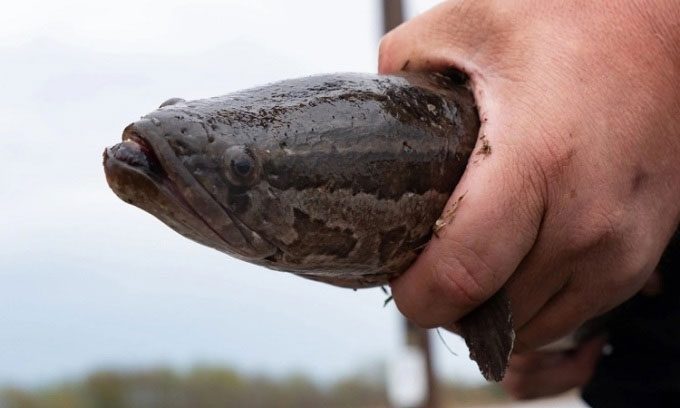Authorities in Missouri are concerned that the invasion of the invasive Northern Pike may spread throughout the rivers in the Midwest after a specimen was discovered in the St. Francis River.
In mid-June, the Missouri Department of Conservation (MDC) announced that an angler caught a second Northern Pike while fishing at the Duck Creek Conservation Area in Puxico. Two days later, MDC officials searched the conservation area and the nearby Mingo Wildlife Refuge but did not find any more fish. Biologists fear that the population of Northern Pike will continue to expand through the St. Francis River basin, according to Yahoo.

Northern Pike have been recorded in 18 states across the U.S. (Photo: Yahoo)
This is a significant issue even though the Northern Pike is a popular game fish and a favorite dish among anglers. Like any invasive species, Northern Pike threaten to disrupt ecosystems and the food sources for species such as bass, walleye, dogfish, crappie, and lake trout. Juvenile Northern Pike consume zooplankton, but as they grow, their diet expands to include crustaceans, aquatic insects, snails, and small fish. When fully mature, Northern Pike not only prey on other fish but also eat frogs, birds, and small mammals.
Northern Pike are native to East Asia and likely made their way into North American waterways through aquaculture or food trade. Their most concerning characteristic is their ability to survive in conditions that other fish cannot. The preferred habitat of Northern Pike is stagnant muddy water. They can survive for three days out of water by breathing air. They can even crawl across land to reach other water bodies. Additionally, very few species reproduce as effectively as Northern Pike. This species can spawn five times a year, producing 50,000 eggs each time.
All these factors have led to the classification of Northern Pike as an invasive species. The spread of Northern Pike in Missouri is just a matter of time, according to fisheries biologist Dave Knuth at the MDC. The first Northern Pike in Missouri was reported in a drainage ditch near the St. Francis River in April 2019, close to the Arkansas border.
Local authorities advise anglers who catch Northern Pike not to release them or leave them on land as they can survive and return to the water. They need to report to the authorities before killing the fish by decapitating or gutting it.


















































